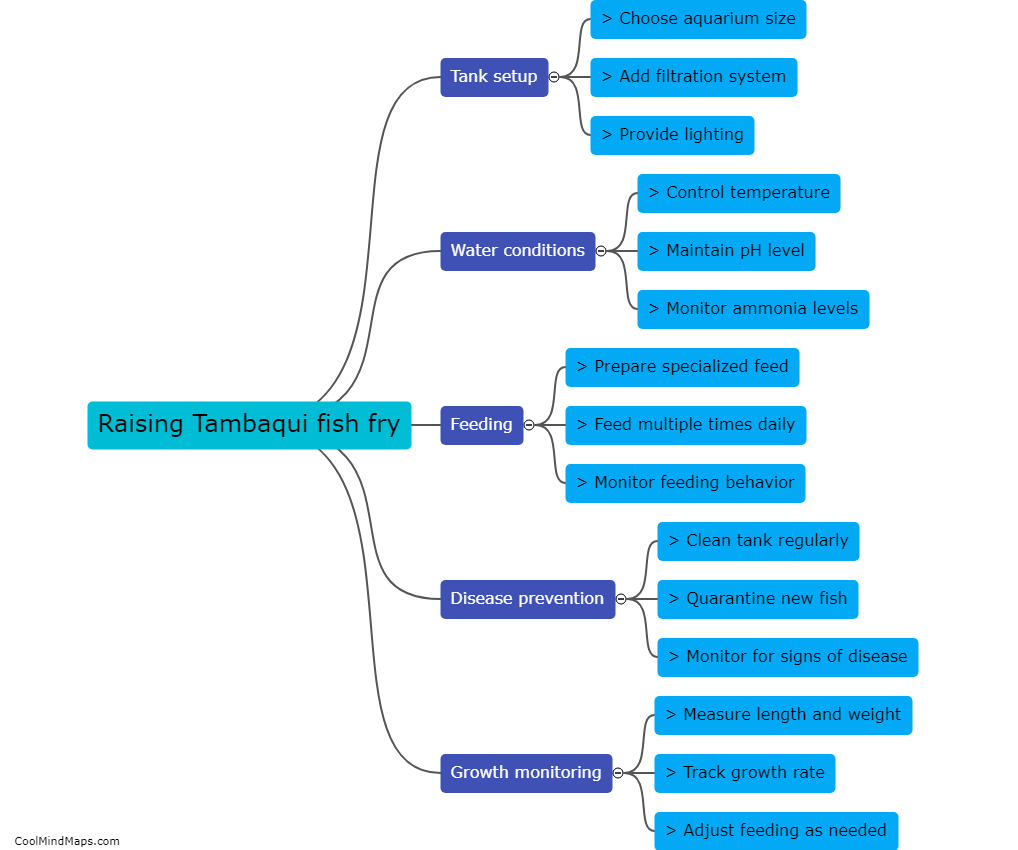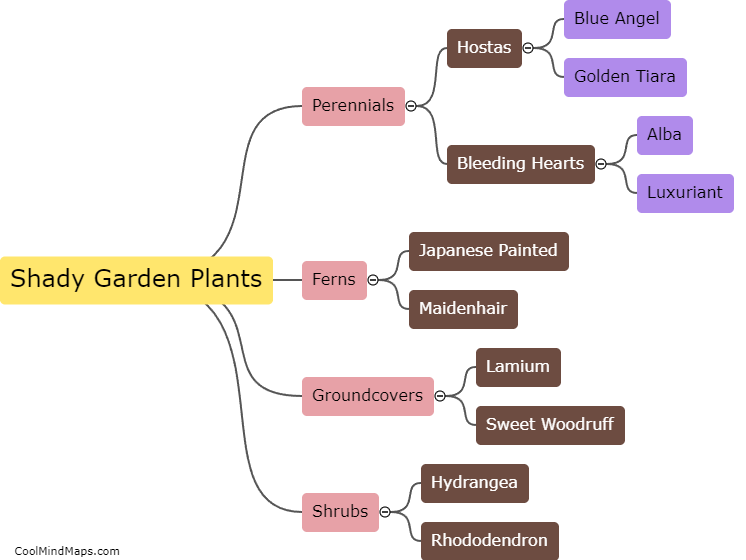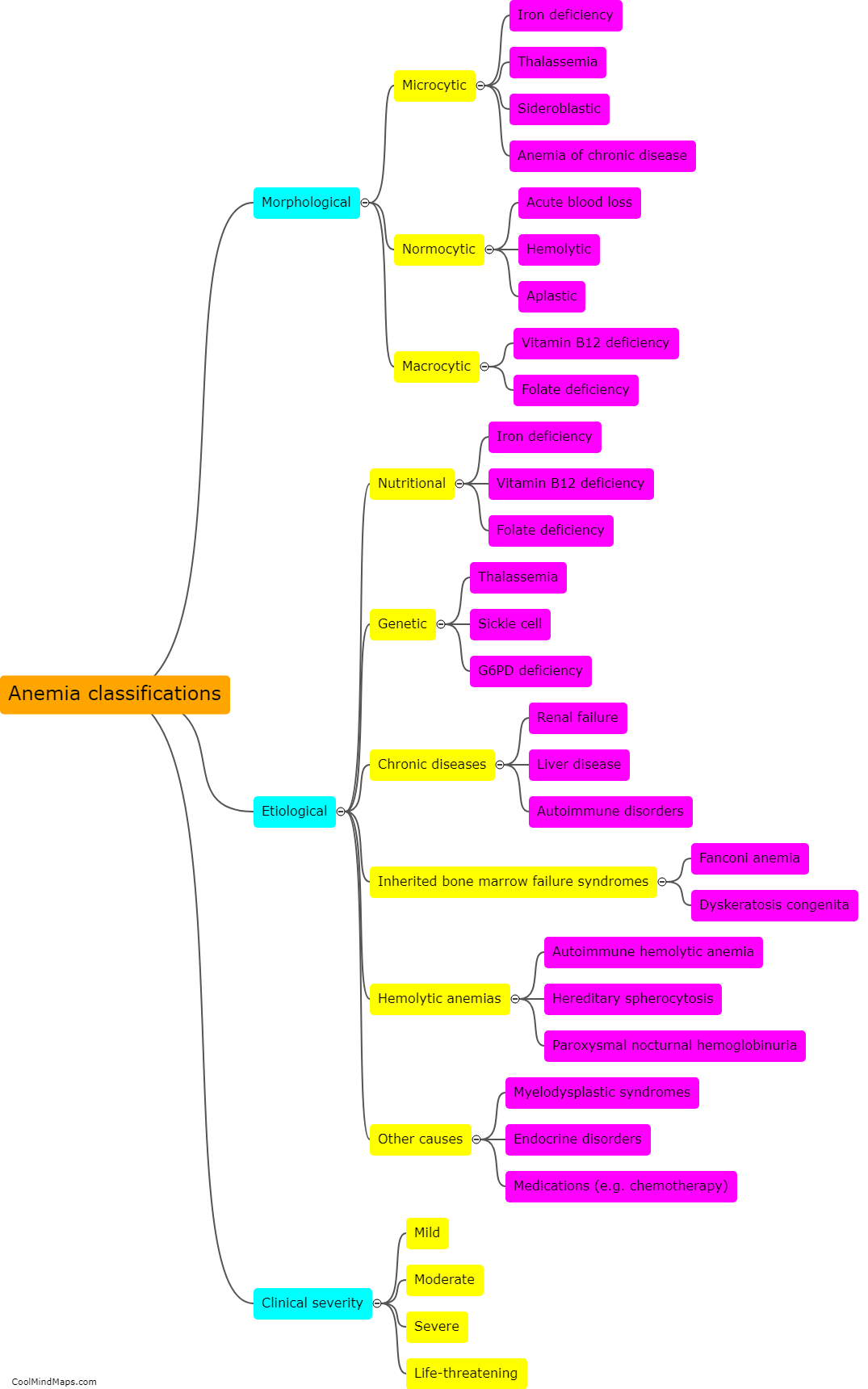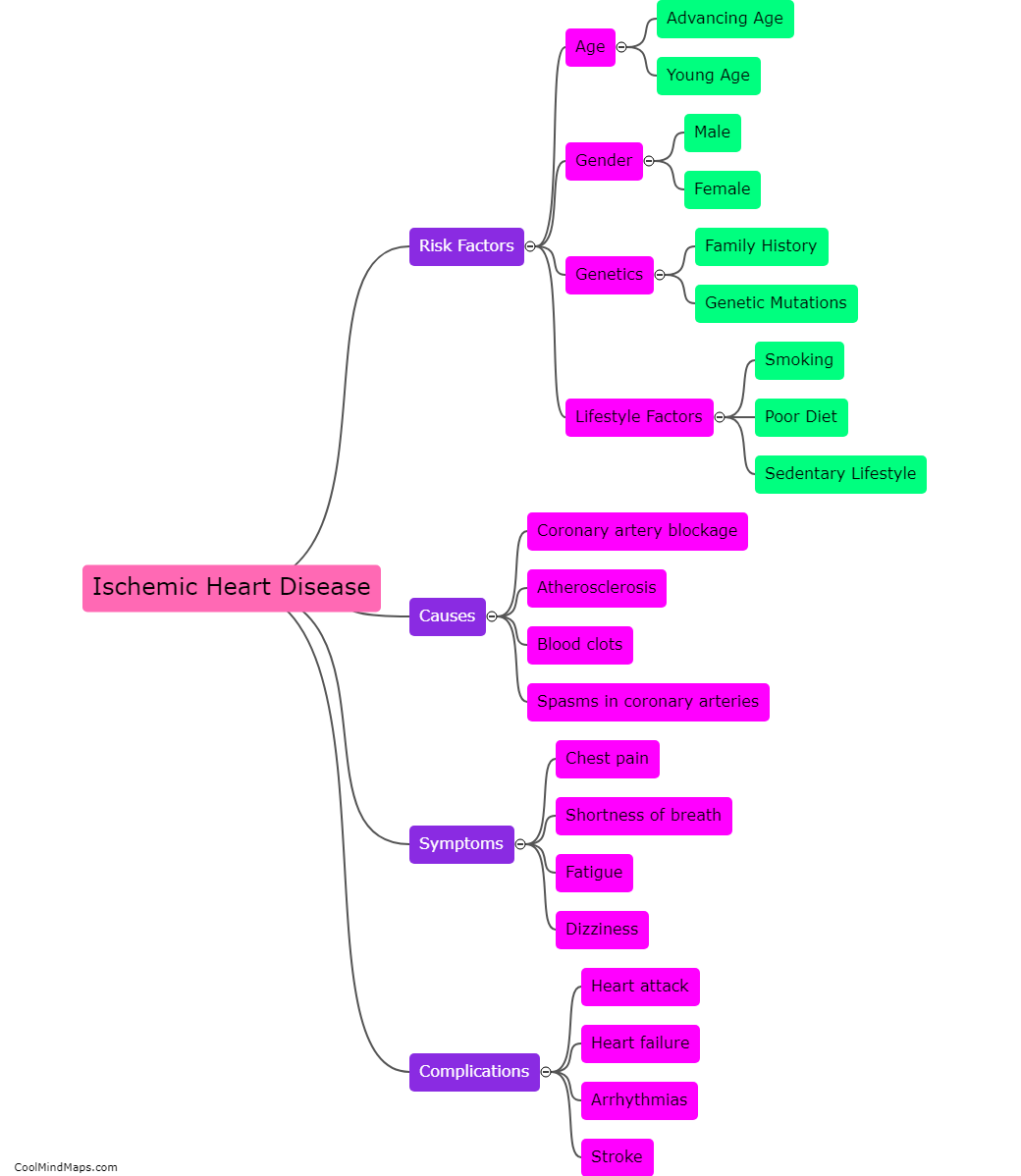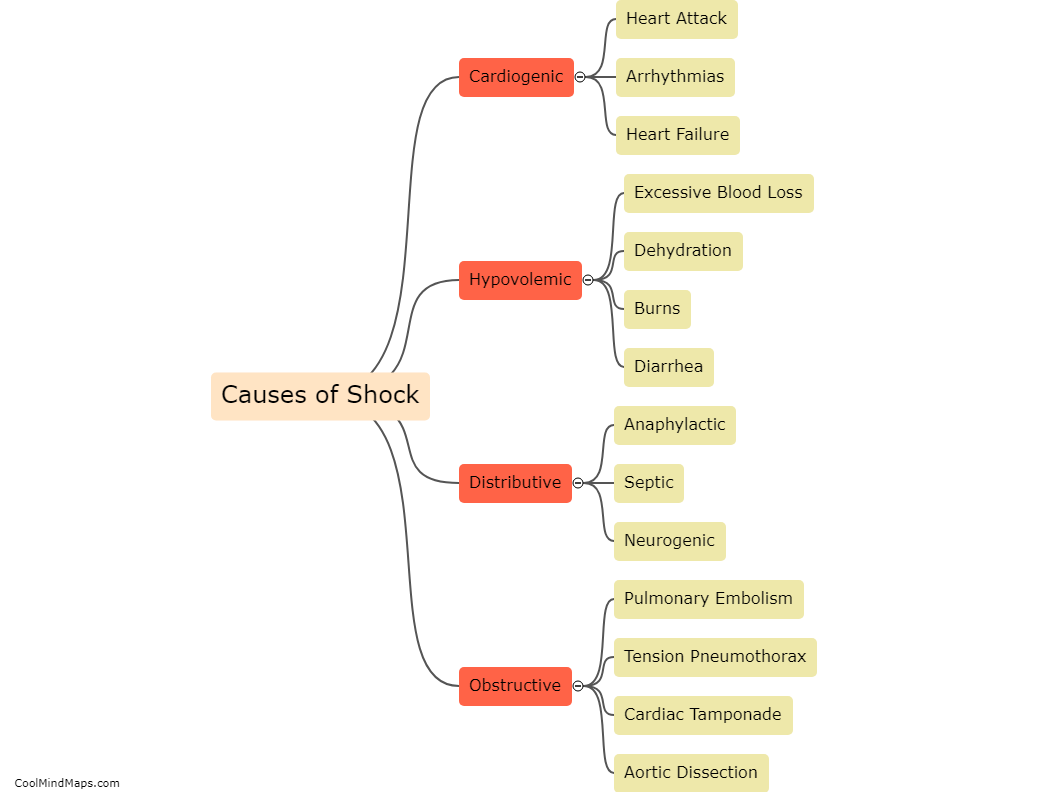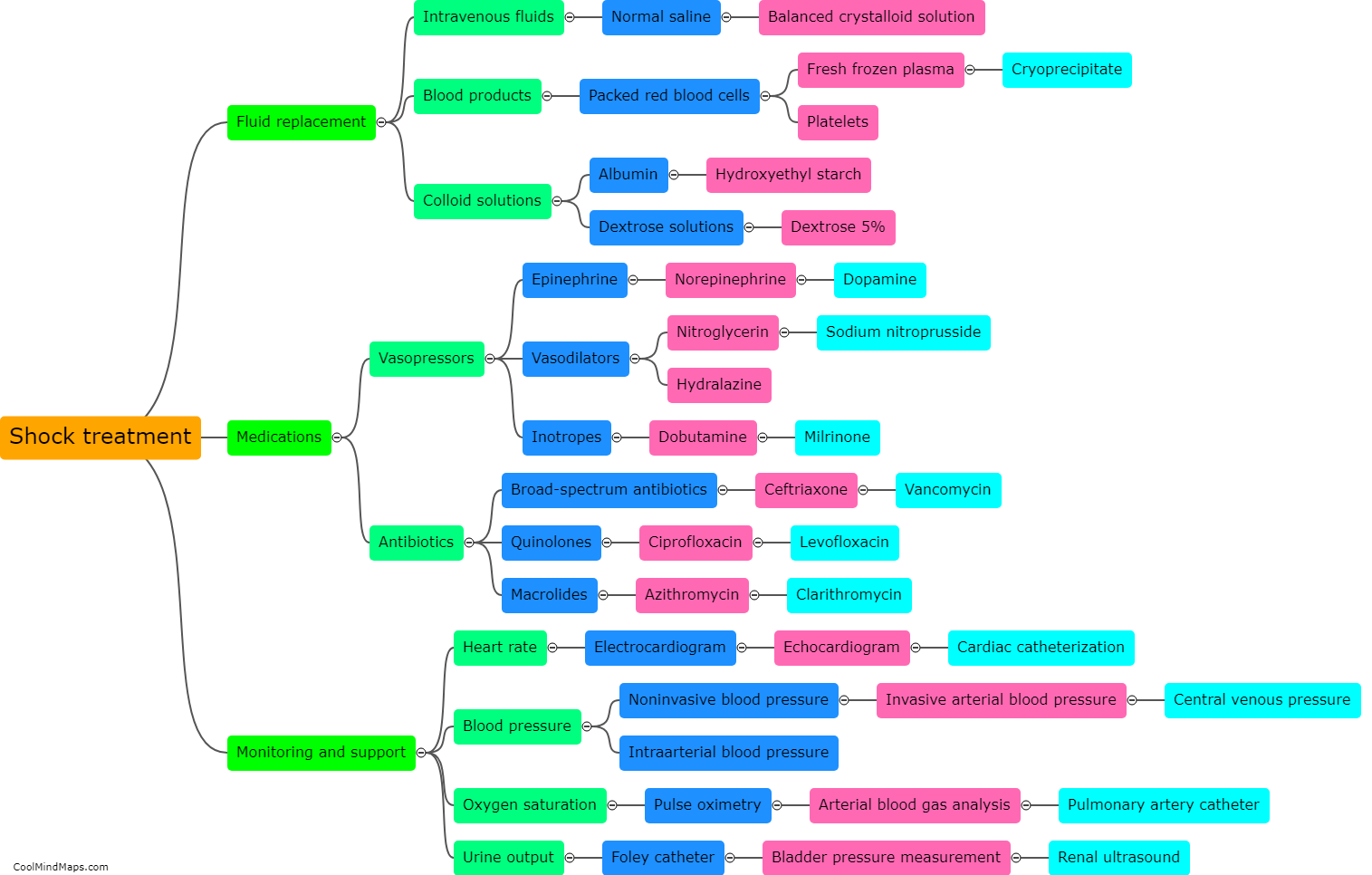What are the symptoms of ischemic heart disease?
Ischemic heart disease, also known as coronary artery disease, is a condition characterized by reduced blood flow to the heart muscle due to narrowed or blocked coronary arteries. The symptoms of ischemic heart disease can vary depending on the severity and location of the blockages. The most common symptom is angina, a chest pain or discomfort that occurs when the heart muscle does not receive enough oxygen-rich blood. Other symptoms may include shortness of breath, fatigue, rapid or irregular heartbeat, dizziness, nausea, and pain or discomfort in other parts of the body such as the arms, neck, jaw, or back. It is important to note that some individuals, particularly women and older adults, may experience atypical symptoms or even no symptoms at all, making it crucial to monitor and manage risk factors to prevent complications.
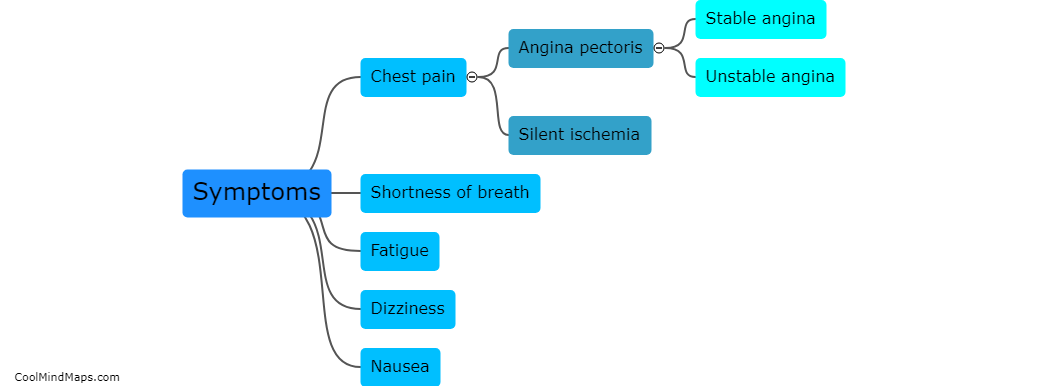
This mind map was published on 19 July 2023 and has been viewed 102 times.

